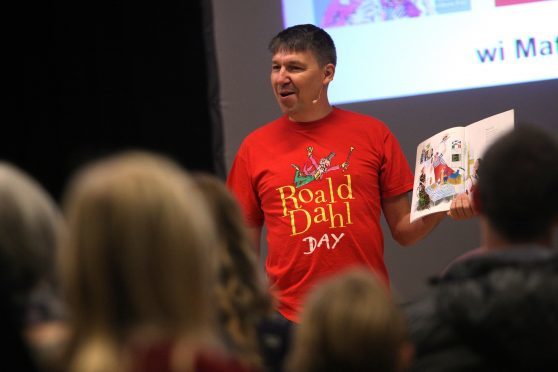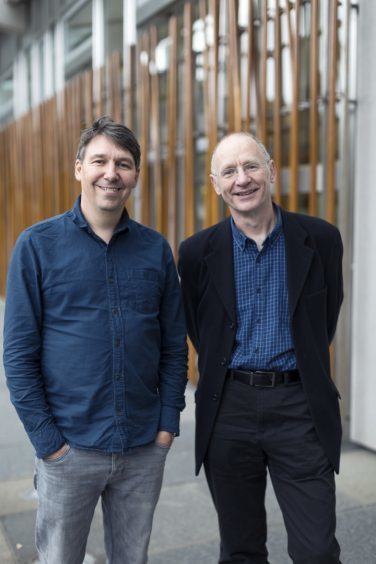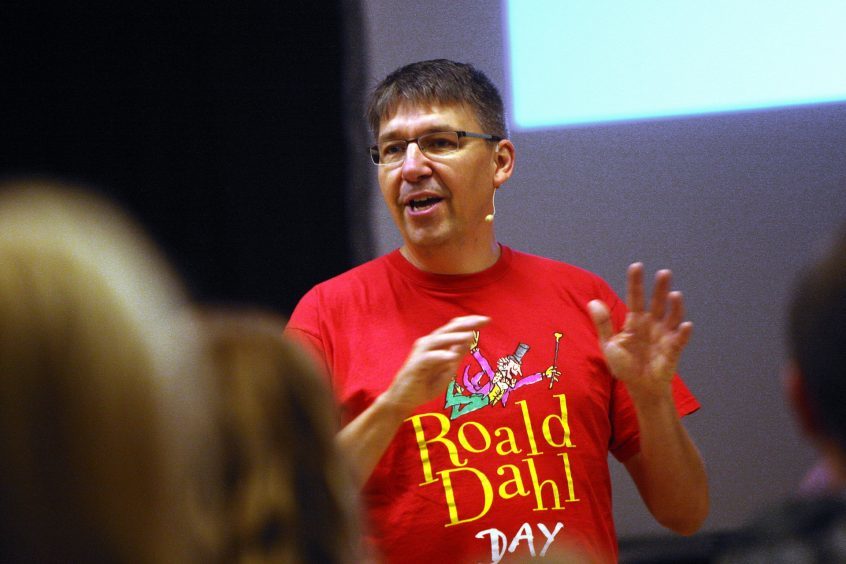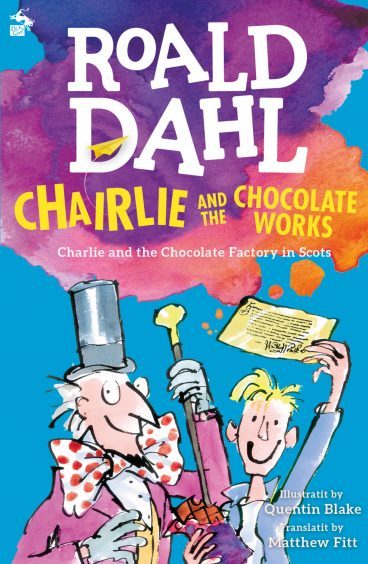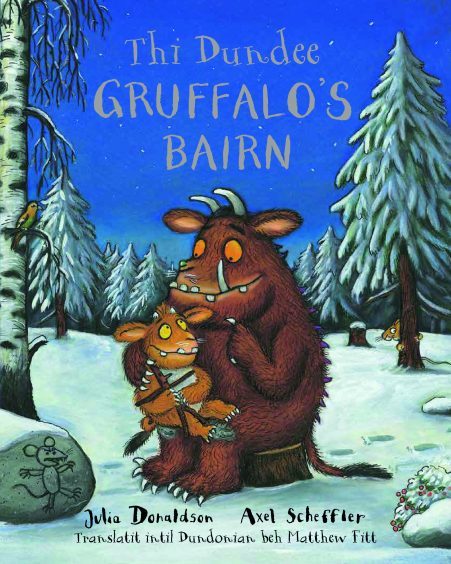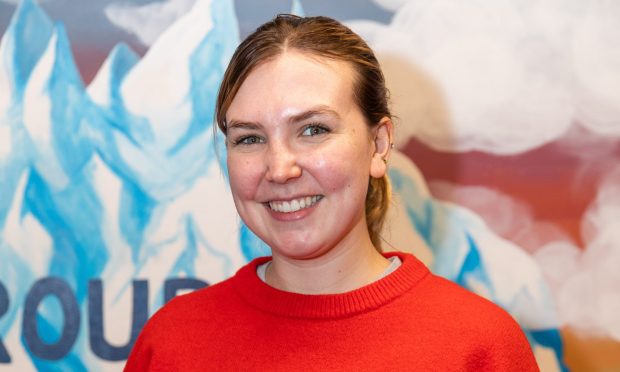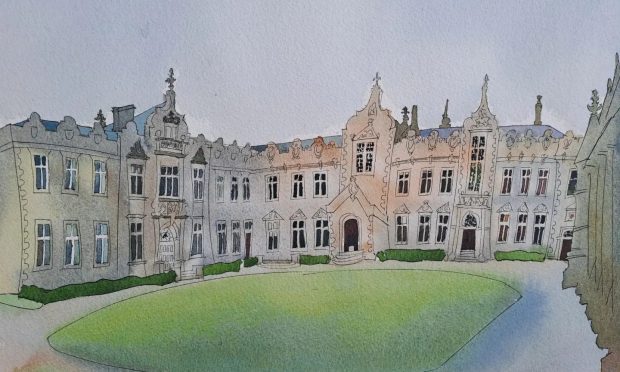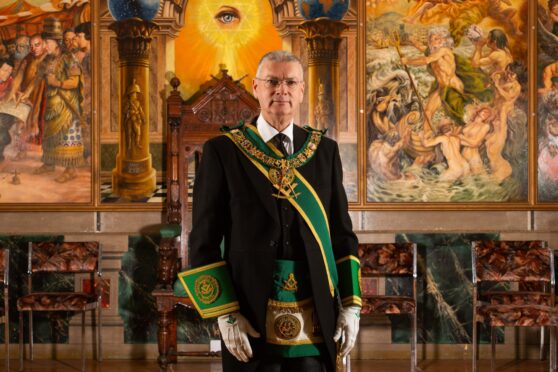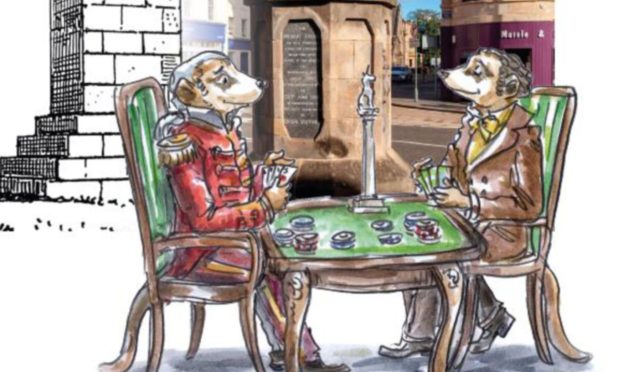Sometimes the best ideas are born over a glass (or two) of wine – or, in Matthew Fitt and James Robertson’s case, a plate of mince and tatties. Back in 2002, as the two local writers tucked into the traditional dish, they found themselves agreeing that there were too few good books in Scots for children and that they should do something about it.
Before they knew it they had founded Itchy Coo, an imprint which publishes “braw books for bairns o’ aw ages”, to encourage better understanding and greater acceptance of the Scots language in education and in all aspects of Scottish life.
“It’s crucial that Scots is recognised for the important role it plays in our society,” says Matthew.
“A lot of children and young people are brilliant and skilful Scots speakers but they are given very little credit for this. Devaluing a child’s own language can damage their self-esteem and have a negative impact on their learning.”
Itchy Coo, Scotland’s most successful Scots language publisher, has published over 60 titles and been read by thousands of children across Scotland.
“When I was wee, there weren’t really any books in Scots,” Matthew recalls. “It makes me very proud that the current generation has so many attractive Scots books to read in the mother tongue.
Matthew is proficient in many different types of Scots. “I’ve lived in other parts of Scotland in my time and have always listened out for people speaking in their own dialects of Scots. You just need to keep your lugs open,” he says. He has translated several books by Roald Dahl including The Eejits, Geordie’s Mingin Medicine and Chairlie and the Chocolate Works.
“These are books I read as a youngster myself and always wanted to see what they would look like in Scots. I’ve also translated Asterix books and novels by David Walliams,” he says.
He has also translated Julia Donaldson’s much-loved children’s classics The Gruffalo and The Gruffalo’s Bairn into Dundonian. “Trying to write down and catch the sounds of Dundonian just right but still making the book easy to read was tricky. Oh and making it all rhyme, that gied me a sair haid,” he recalls.
Matthew and James, who hails from Bridge of Allan, were thrilled to receive the ultimate accolade when they were inducted into the Scottish Traditional Music Hall of Fame in September this year.
“It feels great,” Matthew smiles. “Awards for Scots language are few and far between and we appreciate the recognition of the Scottish Traditional Music Hall of Fame.
“Scots doesn’t receive the same levels of support as other languages,” he continues. “It’s often not even on the radar. I find this frustrating because the 2011 Census revealed that a third of the country speaks Scots. The challenge has always been encouraging the high heid yins of the nation to take Scots seriously.”
Matthew’s next project is a translation of Roald Dahl’s Revolting Rhymes due to be published early next year. “Reekin’ Rhymes will be every bit as revolting in Scots,” he promises, before revealing that Itchy Coo will be publishing Harry Potter and the Philosopher’s Stane’, a Scots translation of JK Rowling’s first novel.
“I’m up tae high doh about this one and interested to see what the bairns make of it,” he smiles.
www.itchy-coo.com amd www.mfitt.co.uk
